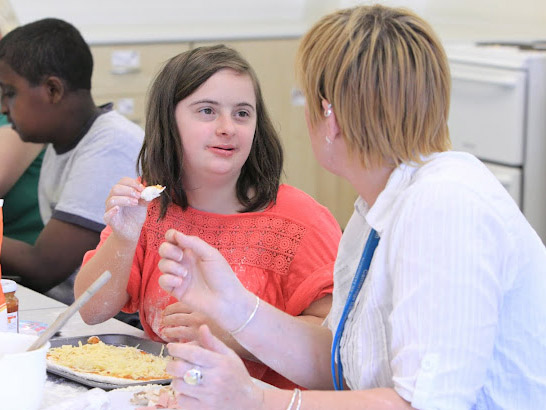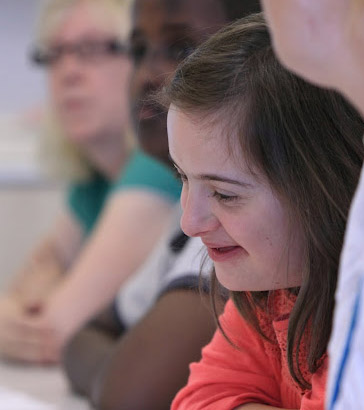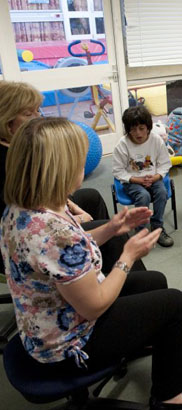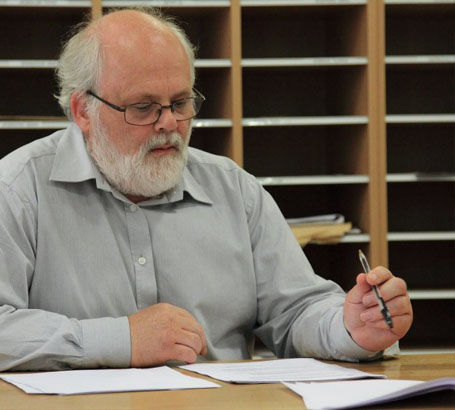
The ability to communicate is fundamental to human experience
and learning and to participation and achievement in all curriculum areas. It is essential for having one's needs and wishes
met and for influencing others. All children have the right to develop the necessary skills to be part of a social world.
DfES (2005)

The ability to communicate is an essential life skill
for all children and young people and it underpins a child's social, emotional and educational development.
DCSF (2008)

The challenge for those living and working with children with SLD, PMLD and CLDD is to empower children as communicators.

To empower children to communicate, professionals who work with children with learning difficulties need:
- A secure knowledge and understanding of how language develops; and
- Sharp observational skills to recognise children's progress as the steps may be very small.
They may also need to learn how to use alternative modes of communication to help remove barriers to communication for children, such as:
- Assistive technologies, eg voice output devices; or
- Augmentative communication systems such as signing, braille, and symbols.

This charter, drawn up by Scope in Australia drawing on ideas from the American Speech-Language and Hearing Association, is directed at children with learning difficulties, to indicate their fundamental rights.
- Download the Communication Bill of Rights.
- Note how icons are used to enhance the written word.


Teachers should aim to give every pupil the opportunity
to experience success in
learning and to achieve as high a standard as possible.
National Curriculum statement on inclusion (1999)
All educators have a statutory duty to enable the children they teach to fulfil their potential.
Communication is the medium of learning. It is important, therefore, that those who work with children with speech, language and communication difficulties provide support for them to ensure that their communication skills are the best they can possibly be.

Work with staff and pupils at your school, and parents, to draw up a communication charter. You may wish to finish studying this module before you embark upon the task.
Once the charter is agreed, lead a number of staff meetings that review all aspects of school policy and practice in the light of the new charter and to agree changes.

DfES (2005) Speaking, Listening, Learning: working with children who have special educational needs. Primary National Strategy. Norwich: HMSO.
DCSF (2008) The Bercow Report: a review of services for children and young people (0-19) with Speech, Language and Communication Needs. Nottingham: DCSF Publications.
The Communication Trust (2012) Let's talk about it: What new teachers need to know about children's communication skills.